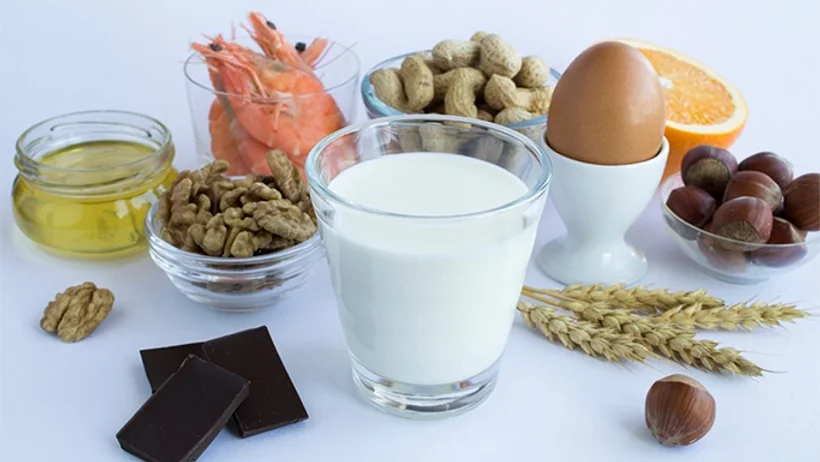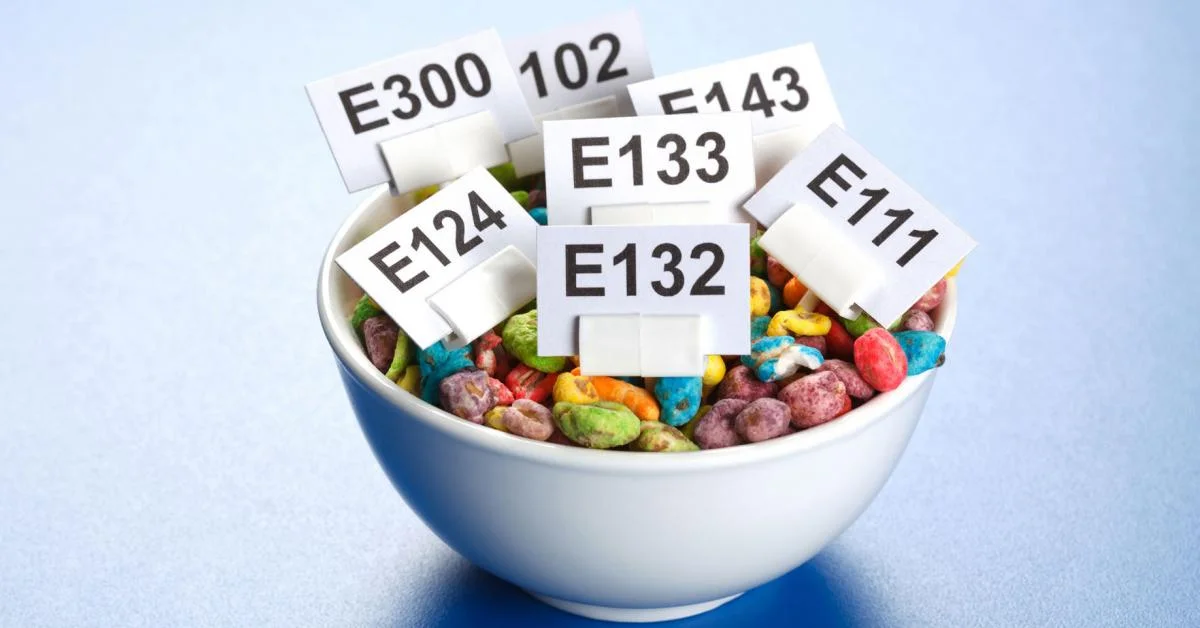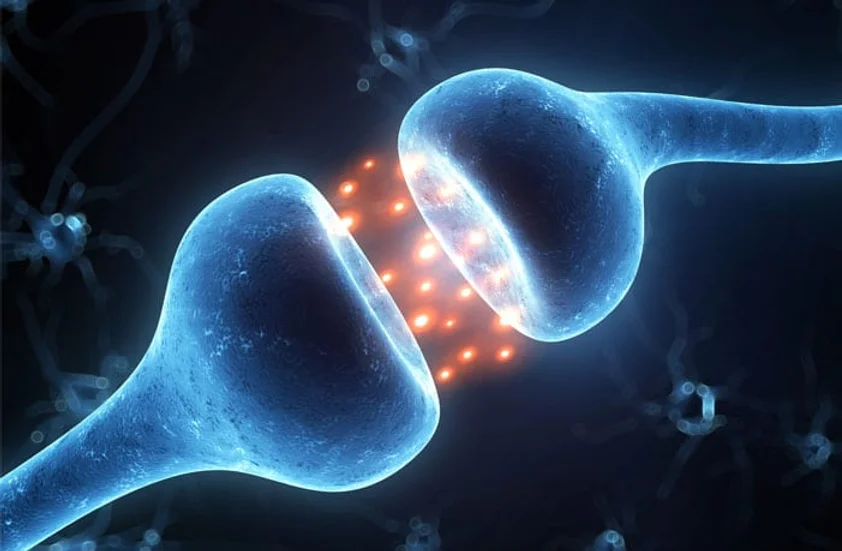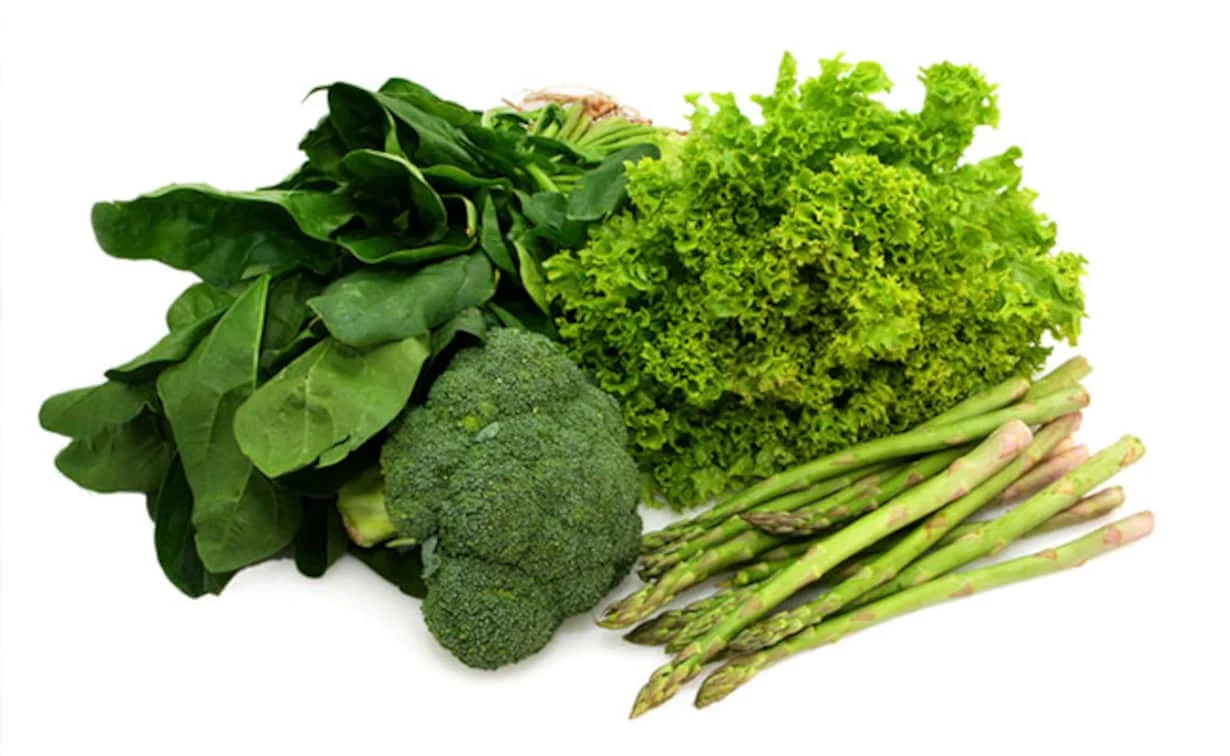Blog



Do you experience cravings for sweet foods and carbohydrates?

Craving Sugar and its Impact on Mood
It is well-known that sweet foods have a powerful effect on our taste buds and often provide a pleasurable and rewarding experience. Consuming sugar activates the reward systems in our brains, triggering the release of neurotransmitters like dopamine, which are associated with feelings of pleasure and reward. This release of dopamine can positively impact our mood, at least in the short-term.
The pleasurable experience associated with consuming sweet foods can lead to a craving for more sugar. Various factors, including psychological, physiological, and environmental factors may influence these cravings.
For example, stress, emotional triggers, and environmental cues can contribute to an increased desire for sugary foods.
Moreover, high glycemic index carbohydrates, which include sugars and refined carbohydrates that quickly raise blood sugar levels, have been associated with cravings and addictive behaviours.
These carbohydrates are quickly digested and absorbed, rapidly increasing blood sugar levels, followed by a subsequent crash. This rollercoaster effect on blood sugar levels can contribute to increased cravings for more sugar or carbohydrates to regain that initial pleasurable feeling.
It's important to note that while sugar and high glycemic index carbohydrates may contribute to cravings in some individuals, the concept is complex and multifaceted. Factors such as genetics, psychological factors, and individual susceptibility may also play a role in reactions related to food.
Sugars and the Dopamine Receptors in the Brain
Sugar and its impact on the brain's reward system are fascinating subjects to explore. When we indulge in sweet foods, a remarkable process takes place within our brains. The reward system, known as the mesolimbic dopamine system, springs into action. Dopamine, a neurotransmitter released by neurons, plays a pivotal role in signalling positive events. So, when the reward system fires up, it reinforces our behaviours.
Sucrose, a type of sugar, is thought to activate the release of dopamine in the brain through various mechanisms. This means that consuming sugary treats can trigger a surge of dopamine, creating feelings of pleasure and satisfaction. However, there's an intriguing twist!
Researchers propose that sugar might have long-term effects on the brain's dopamine receptors. Over time, excessive sugar consumption could lead to an altered gene expression and availability of the number of D2 receptors in the brain and even a decrease in extracellular dopamine levels. The desensitization of the dopamine signalling pathway could cause a chain reaction of effects.
Now, let's explore how this relates to children with ADHD. Certain groups of children may find themselves instinctively drawn to sugar, seeking its temporary boost in dopamine levels. It has been proposed that they might be attempting to compensate for a dopamine-deficient state.
Exploring the connection between sugar, dopamine, and ADHD can lead to fascinating discoveries. Exploring how the brain reacts to sugar and its effects on behaviour and health outcomes can provide essential insights into the impact of sugar on ADHD symptoms. Exploring these complex connections can help us comprehend why sugar is so tempting and the potential effects it may have.
Sugars and the Gut Microbiome
Sugar possesses a remarkable ability to fuel the growth of bacteria within our bodies. When we consume a diet high in sugar, some of these sweet substances find their way into the intricate world of the gut microbiome, where a diverse community of bacteria resides.
This influx of sugars serves as an energy source for certain bacteria, causing them to multiply and disrupt the delicate balance within the microbiome.
However, the impact of sugar extends beyond the internal workings of bacterial cells. The external metabolites, which are the chemical by-products of bacterial metabolism, change in the presence of dietary sugar. These alterations affect the intricate interplay between bacteria and their environment in the gut.
These insights shed light on sugar's profound influence over our gut microbiome—a complex ecosystem that plays a vital role in our overall well-being.
A thriving and diverse microbiome is crucial for maintaining good health, and excessive sugar consumption can disrupt this delicate equilibrium. We can understand how our dietary choices affect the complex microbial community in our gut by recognising the connection between sugar and the gut microbiome.
If a sugary treat tempts you, it can be helpful to think beyond just satisfying your craving. Every time you indulge, you're also feeding the bacteria living inside your body. So, considering the bigger picture can be beneficial.
By making informed decisions about your sugar intake, you can help preserve the delicate harmony of your gut microbiome, fostering a healthier and more balanced internal environment.
Balancing Carbohydrate Intake for Blood Sugar Regulation
Achieving a balance in carbohydrate intake is important for maintaining stable blood sugar levels and overall health.
Including carbohydrates with a lower glycemic index, such as whole grains, legumes, and non-starchy vegetables, can help minimise blood sugar spikes and promote a more gradual and sustained release of glucose into the bloodstream.
Combining carbohydrates with sources of protein, healthy fats, and dietary fibre can slow down digestion and regulate blood sugar levels.
This balanced approach to consuming carbohydrates can improve energy levels, better blood sugar control, and a lower risk of chronic diseases related to unstable blood sugar levels.
Know Where to Find Hidden Sugars:
For most of us, it’s absolutely OK to enjoy carbohydrate snacks and sweets in moderation, but it’s helpful to be aware of the hidden sugars in our food and drinks. Many processed foods and drinks contain added sugars, often disguised under different names on the ingredient list. Let's uncover some of the common names and types of sugars and sweeteners used in food manufacturing:
High-Fructose Corn Syrup (HFCS): HFCS is a widely used sweetener derived from corn starch. It is commonly found in sodas, sweetened beverages, baked goods, and processed snacks.Sucrose: Sucrose, also known as table sugar, is a combination of glucose and fructose. It is present in various foods, including desserts, candies, breakfast cereals, and sweetened drinks.Fructose: Fructose is a natural sugar found in fruits and honey. It is often used as a sweetener in processed foods, including sodas, fruit-flavoured drinks, and some desserts.Dextrose: Dextrose, also known as glucose, is a simple sugar derived from corn. It is commonly used as a sweetener in processed foods, energy bars, and sports drinks.Maltose: Maltose is a sugar formed by the breakdown of starch. It is commonly used as a sweetener in beer, malt beverages, and some processed foods.Lactose: Lactose is the naturally occurring sugar found in milk and dairy products. It is often used as a sweetener in flavoured milk drinks, yoghurt, and ice cream.Syrups: Various syrups are used in food manufacturing to add sweetness. These include rice syrup, maple syrup, agave syrup, and molasses. They are frequently found in baked goods, breakfast cereals, and sauces.Artificial Sweeteners: Besides natural sugars, many food products contain artificial sweeteners to provide sweetness without calories. Artificial sweeteners include aspartame, sucralose, saccharin, and acesulfame potassium (Ace-K). These sweeteners are used in diet sodas, sugar-free snacks, and low-calorie products.
Staying hydrated!
Hydration is crucial for maintaining overall health and can play a significant role in reducing cravings.
Prioritize Sleep.
Inadequate sleep can disrupt hormone levels in appetite regulation and increase cravings. Aim for 7-9 hours of quality sleep each night. Establish a consistent sleep schedule, create a conducive sleep environment, and practice good sleep hygiene habits to improve the quality and duration of your sleep.
Finding delicious sweet-tasting alternatives.
In my clinic, I advise against attempting to go 'sugar-free' or 'cut out carbs'. These approaches are very rarely helpful and can, in fact, result in binge-reward eating patterns.
Being creative and making some simple swaps in the kitchen, lunchbox or whilst eating on the go can make a world of difference.
Many simple snacks and desserts can be easily prepared and taste delicious without creating a sharp rise in blood sugar.
I have a section in my recipe collection devoted to sweet-tasting treats that will also help keep you feeling fuller for longer and feed your beneficial bacteria.
Remember, managing carbohydrate intake and reducing cravings is a personalised journey.
It's important to listen to your body, make gradual changes, and find a balanced approach that works for you.
Consulting with a nutritionist or healthcare professional can provide personalised guidance and support tailored to your specific needs and goals.
Click on the link to order your recipe collection.
Aug 23, 2023



Unravelling the Connection: Food Sensitivities, Allergies and ADHD

When it comes to understanding the relationship between food allergies, food sensitivities, and ADHD, the landscape can be complex. As a nutritionist specializing in ADHD and gut health, I aim to shed light on this intricate connection.
It’s a fascinating topic - the differences between food allergies and sensitivities. It's really important to understand how our bodies react to different foods. Let’s also explore the interesting link between ADHD and celiac disease.
Food Allergies vs. Food Sensitivities:
Food allergies involve an immune system response triggered by specific foods. The immune system identifies certain proteins in the food as harmful, leading to an allergic reaction. Symptoms can range from mild to severe, including hives, itching, swelling, difficulty breathing, and even anaphylaxis, a life-threatening reaction. Common food allergens include peanuts, tree nuts, shellfish, eggs, milk, wheat, and soy.
Food allergies usually occur due to a person's genetic predisposition. When an allergic individual comes into contact with a specific food, their immune system perceives it as a threat and releases immunoglobulin E (IgE) antibodies. These antibodies trigger the release of histamine and other chemicals, resulting in an allergic reaction.
Food sensitivities, on the other hand, are non-immune responses that do not involve the release of histamines or other immune mediators. These symptoms can be subtle and appear as digestive problems, skin issues, headaches, or changes in behaviour. Sensitivities differ from allergies in that they may be affected by the amount of trigger food consumed. In some cases, smaller amounts of the trigger food may be tolerated. Common food sensitivities include lactose, gluten, certain additives, and food chemicals such as salicylates or amines.
The causes of food sensitivities are more diverse and can involve multiple factors.
Here are a few additional causes of food sensitivities and some common symptoms associated with them:
Enzyme deficiencies: Certain individuals may lack specific enzymes required to break down certain food components. For example:
Lactose intolerance: When your body doesn't produce enough lactase, the enzyme that helps digest lactose (found in dairy products), you may experience uncomfortable symptoms such as bloating, gas, diarrhoea, and abdominal discomfort after consuming foods that contain lactose.Histamine intolerance: If you have difficulty breaking down histamine, a compound commonly found in fermented foods, aged cheeses, and cured meats, you may experience symptoms such as headaches, flushing, hives, nasal congestion, and digestion problems.
Food chemicals and additives: Some individuals may be sensitive to naturally occurring chemicals or artificial additives present in certain foods. Examples include:
Salicylates: Salicylates are present in different fruits, vegetables, and spices and may cause headaches, skin rashes, digestive issues, and behavioural changes in people who are sensitive to them.Monosodium glutamate (MSG): Some people may experience symptoms such as headaches, flushing, sweating, and heart palpitations after consuming a flavour enhancer found in numerous processed foods and restaurant meals.
Non-celiac gluten sensitivity: Although not the same as celiac disease, some people may have similar symptoms after consuming foods that contain gluten. These symptoms may include abdominal pain, bloating, diarrhoea, fatigue, difficulty concentrating, and joint pain.
Food sensitivities related to gut health: Food sensitivities can be caused by imbalances in gut bacteria or a compromised gut barrier function. If you have conditions such as leaky gut syndrome or dysbiosis, your intestinal permeability may increase. This can result in food particles entering your bloodstream and causing an immune response. There is a wide range of symptoms associated with this condition, including digestive problems, skin issues, fatigue, joint pain, and mood changes.
Please keep in mind that food sensitivities can vary from person to person. Not everyone will have identical symptoms or reactions to the same foods.
So, what about Celiac Disease?
Celiac disease is an autoimmune condition triggered by the consumption of gluten, a protein found in wheat, barley, and rye. Recent research has found a fascinating connection between ADHD and celiac disease. Research indicates that people with ADHD might be more likely to have celiac disease than those who do not have ADHD.
Here are some key findings from studies exploring this relationship:
Prevalence of celiac disease in ADHD: Some research shows that people with ADHD have a higher likelihood of having celiac disease than those without ADHD. Improvement in ADHD symptoms with a gluten-free diet: Research has shown that people with celiac disease or non-celiac gluten sensitivity who switch to a gluten-free diet may experience a reduction in ADHD symptoms. Shared immune and genetic factors: Celiac disease and ADHD share a common link in their complex interaction between genetic and environmental factors. Immune system genes, specifically the HLA-DQ2 and HLA-DQ8 alleles, are associated with both conditions, indicating a possible shared genetic vulnerability.Nutrient deficiencies and brain function: Celiac disease can cause problems with absorbing nutrients such as vitamins, minerals, and omega-3 fatty acids. These nutrient deficiencies have been linked to cognitive impairment and may make ADHD symptoms worse.
While these studies provide intriguing insights, it's important to note that the research is still evolving, and more studies are needed to establish a definitive cause-and-effect relationship between celiac disease and ADHD. It is essential to acknowledge that people with ADHD may not necessarily have celiac disease. Therefore, a gluten-free diet is not a universal recommendation and may not be appropriate for most people with ADHD. Consequently, it is crucial to consult with healthcare professionals for accurate diagnosis and personalized guidance regarding dietary interventions if you have concerns or digestive symptoms.
What solutions are available?
As a nutritionist, I focus on providing personalized care for my clients' symptoms during our clinic sessions. I work closely with clients to assess their specific needs and develop tailored strategies to address their concerns. When dealing with food allergies, sensitivities, and their possible effect on ADHD symptoms, there are two commonly used techniques: elimination diets and the 5R approach.
Elimination Diets: Elimination diets involve the systematic removal of specific foods or food groups suspected of causing adverse reactions. By eliminating potential trigger foods for a designated period, clients can observe changes in symptoms and evaluate their individual responses. This process allows for identifying specific food sensitivities and helps determine which foods may contribute to ADHD symptoms.
The 5R Approach is a framework commonly used in functional medicine and nutrition to address gut health problems, such as food sensitivities. It is a comprehensive approach that stands for the 5R’s:
Remove: Identify and remove potential triggers, such as allergenic or inflammatory foods, from the diet.Replace: Incorporate nutrient-dense and easily digestible foods to support optimal nutrition.Reinoculate: Support the growth of beneficial gut bacteria by introducing probiotics and fermented foods.Repair: Promote gut healing through targeted nutrients and supplements that support the intestinal lining.Rebalance: Focus on maintaining a balanced and healthy lifestyle by addressing stress management, sleep, and exercise.
Working with a nutritionist or dietitian who is experienced in the 5R approach can provide guidance and support throughout the process, ensuring a comprehensive and individualized approach to managing food sensitivities and gut health concerns.
Supervision and Professional Guidance: Carrying out elimination diets or implementing the 5R approach should always be done under the supervision and guidance of a qualified healthcare professional. They can assess the individual's medical history, and nutritional needs, and monitor progress throughout the process. Professional supervision helps ensure the diet is appropriately designed, nutritional requirements are met, and potential risks are minimized.
Plus, working with a nutritionist offers personalized advice, continuous assistance, and the opportunity to overcome any obstacles or issues that may arise during dietary changes.
Don't forget to book your free, no-obligation discovery call, and talk to Sarah about any concerns you may have concerning food intolerances, gut health and ADHD symptoms.
https://www.sonutrition.co.uk/copy-of-contact
Have you joined the FREE, Private Facebook Community for ADHD, Nutrition and Dietary support and advice? Every week we have LIVE Q&As, recipes and tips.
Sep 7, 2023



Do Food Additives Worsen ADHD Symptoms?

Food additives, dyes, and preservatives are all around us and are a topic of much debate. There are concerns about the potential health effects of these substances, particularly when it comes to children with ADHD. Let's explore what the research tells us. Have you ever wondered why many of our food products contain additives, dyes, and preservatives? These substances are added to enhance food's flavour, texture, and appearance. Dyes are used for colour, while preservatives prevent spoilage and extend the shelf life of food.
As a nutritionist, I often get asked if there is a connection between certain substances and ADHD symptoms.
It's important to note that not all food additives are controversial, and some are necessary to ensure that our food stays fresh and safe to eat. For centuries, salt has been utilized as a natural preservative to prevent meat from spoiling, for example. However, more than 10,000 additives are approved for use in our food, some of which haven't been evaluated in decades!
When it comes to food additives, there are several common ones that have been studied for their potential link to ADHD symptoms. These include:
Artificial food colours are dyes added to food to enhance their colour or make them look more appetizing. Some common artificial food colours for food packaging include Red 40, Yellow 5, and Blue 1.
Preservatives: These are substances that are added to food to prevent spoilage and extend shelf life. Some common preservatives to look out for on food packaging include sodium benzoate, sodium nitrite, and BHA/BHT.
Flavour enhancers: These are substances that are added to food to enhance their taste. One common flavour enhancer to be aware of is monosodium glutamate (MSG).
The research on this topic is quite mixed, but some studies do suggest a connection.
For example, a study published in The Lancet in 2007 found that children who consumed a mixture of food dyes and the preservative sodium benzoate were more likely to display hyperactive behaviour. The study was controversial at the time, but it sparked a lot of discussion about the potential risks of food additives.
Since then, other studies have been conducted, with some finding a link between food additives and ADHD symptoms and others not finding anything significant. So, what does all of this tell us? Well, it suggests that there might be a link between food additives and ADHD symptoms, but the evidence is still not conclusive. It's possible that some children are more sensitive to these substances than others and that more research is needed to identify these children and understand why they might be more susceptible.
For example, a study published in the Journal of Attention Disorders in 2012 found that pre-schoolers who consumed food with artificial food colours and/or the preservative sodium benzoate showed significantly more hyperactive and impulsive behaviour than those who consumed a placebo. Another study published in Paediatrics in 2013 found that eliminating food additives from the diets of children with ADHD resulted in significant reductions in hyperactive and impulsive behaviour.
Let’s find out a little more about sodium benzoate. Sodium benzoate is a preservative that is commonly used in the food industry to prevent the growth of bacteria, yeast, and fungi. It's often added to acidic foods like fruit juices, soft drinks, pickles, condiments, and sauces. Sodium benzoate is considered safe by regulatory agencies like the US Food and Drug Administration (FDA) and the European Food Safety Authority (EFSA), and it's generally recognized as safe (GRAS) when used in appropriate amounts. However, concerns about its potential health effects have been raised, particularly in combination with other food additives.
Some experts have suggested that sodium benzoate may cause DNA damage or have negative effects on the immune system, but the evidence on these potential risks is still limited and inconclusive. It's worth noting that some people appear to be more sensitive to sodium benzoate than others and may experience allergic reactions or other adverse effects as a result of consuming foods that contain this preservative.
Overall, while sodium benzoate is considered safe in small amounts, it's still a good idea to read food labels carefully and try to limit your intake of this and other food additives as much as possible, particularly if you or your child has been diagnosed with ADHD.
There has been a lot of coverage in the media about MSG. So, what exactly is it? MSG is a flavour enhancer that is often used in processed foods to enhance their taste. It's a form of glutamic acid, which is a naturally occurring amino acid found in many foods, including tomatoes, cheese, and meat. The US Food and Drug Administration (FDA) has classified MSG as generally recognized as safe (GRAS), and the European Food Safety Authority (EFSA) has also concluded that it is safe for consumption.
MSG is typically added to foods like soups, frozen dinners, and snack foods to give them a savoury or umami taste. It's also sometimes used in Asian cuisine, particularly in dishes like stir-fry and ramen noodles. In recent years, there has been controversy surrounding MSG. Indeed, many of my clients feel that they may be sensitive to MSG and experience symptoms like nausea, headaches or flushing when they consume it even though studies have not found a clear link between MSG and these negative health effects.
When it comes to ADHD specifically, there have been some studies that suggest a potential link between MSG and symptoms of hyperactivity and inattention. For example, a study published in the Journal of Paediatrics in 2018 found that children with ADHD who consumed high levels of dietary glutamate (including MSG) showed higher levels of hyperactivity and impulsivity than those who consumed lower levels of glutamate. Another study published in the journal Nutritional Neuroscience in 2019 found that MSG consumption was associated with higher levels of inattention and hyperactivity in children. Although the discoveries are intriguing, it is important to keep in mind that they are derived from observational research and do not establish a cause-and- effect relationship. It's also possible that other factors may be influencing the link between MSG and ADHD symptoms. For example, children who consume a lot of MSG may also be consuming other types of food additives or have other dietary habits that could be contributing to their symptoms.
In the meantime, many parents of children with ADHD choose to limit their children's intake of food additives, dyes, and preservatives as a precautionary measure or in response to observed changes in mood or behaviour. It can be difficult since these substances are prevalent in our food supply.
So, what can you do if you're concerned about the potential risks of food additives? Start by carefully reading food labels and avoiding foods containing artificial colours, flavours, and preservatives. Focus on whole foods like fruits, vegetables, whole grains, and lean proteins, and cook as much as possible from scratch. I work with my clients to help them make informed choices about their diet and reduce their overall exposure to these substances. In my free private Facebook Community – ADHD Nutrition and Diet Community, I share weekly, easy-to-prepare recipes and hold weekly LIVE Q&As for our members.
Let’s find out a little more about sodium benzoate. Sodium benzoate is a preservative that is commonly used in the food industry to prevent the growth of bacteria, yeast, and fungi. It's often added to acidic foods like fruit juices, soft drinks, pickles, condiments, and sauces. Sodium benzoate is considered safe by regulatory agencies like the US Food and Drug Administration (FDA) and the European Food Safety Authority (EFSA), and it's generally recognized as safe (GRAS) when used in appropriate amounts. However, concerns about its potential health effects have been raised, particularly in combination with other food additives.
Some experts have suggested that sodium benzoate may cause DNA damage or have negative effects on the immune system, but the evidence on these potential risks is still limited and inconclusive. It's worth noting that some people appear to be more sensitive to sodium benzoate than others and may experience allergic reactions or other adverse effects as a result of consuming foods that contain this preservative.
Overall, while sodium benzoate is considered safe in small amounts, it's still a good idea to read food labels carefully and try to limit your intake of this and other food additives as much as possible, particularly if you or your child has been diagnosed with ADHD.
There has been a lot of coverage in the media about MSG. So, what exactly is it? MSG is a flavour enhancer that is often used in processed foods to enhance their taste. It's a form of glutamic acid, which is a naturally occurring amino acid found in many foods, including tomatoes, cheese, and meat. The US Food and Drug Administration (FDA) has classified MSG as generally recognized as safe (GRAS), and the European Food Safety Authority (EFSA) has also concluded that it is safe for consumption.
MSG is typically added to foods like soups, frozen dinners, and snack foods to give them a savoury or umami taste. It's also sometimes used in Asian cuisine, particularly in dishes like stir-fry and ramen noodles. In recent years, there has been controversy surrounding MSG. Indeed, many of my clients feel that they may be sensitive to MSG and experience symptoms like nausea, headaches or flushing when they consume it even though studies have not found a clear link between MSG and these negative health effects.
When it comes to ADHD specifically, there have been some studies that suggest a potential link between MSG and symptoms of hyperactivity and inattention. For example, a study published in the Journal of Paediatrics in 2018 found that children with ADHD who consumed high levels of dietary glutamate (including MSG) showed higher levels of hyperactivity and impulsivity than those who consumed lower levels of glutamate. Another study published in the journal Nutritional Neuroscience in 2019 found that MSG consumption was associated with higher levels of inattention and hyperactivity in children. Although the discoveries are intriguing, it is important to keep in mind that they are derived from observational research and do not establish a cause-and- effect relationship. It's also possible that other factors may be influencing the link between MSG and ADHD symptoms. For example, children who consume a lot of MSG may also be consuming other types of food additives or have other dietary habits that could be contributing to their symptoms.
In the meantime, many parents of children with ADHD choose to limit their children's intake of food additives, dyes, and preservatives as a precautionary measure or in response to observed changes in mood or behaviour. It can be difficult since these substances are prevalent in our food supply.
So, what can you do if you're concerned about the potential risks of food additives? Start by carefully reading food labels and avoiding foods containing artificial colours, flavours, and preservatives. Focus on whole foods like fruits, vegetables, whole grains, and lean proteins, and cook as much as possible from scratch. I work with my clients to help them make informed choices about their diet and reduce their overall exposure to these substances. In my free private Facebook Community – ADHD Nutrition and Diet Community, I share weekly, easy-to-prepare recipes and hold weekly LIVE Q&As for our members.
Join with the link: https://www.facebook.com/groups/sonutritioncommunity
Sep 7, 2023



Functional Testing and ADHD

Emerging evidence of a link between bacteria in the gut and ADHD has encouraged researchers to explore this area in detail and given rise to the potential for new alternative future treatment options.
Evidence suggests that people with ADHD may have a different composition of bacteria in the gut compared to groups without ADHD. There is already compelling evidence to suggest that the trillions of microbes living in our digestive system may influence our physical and mental health through the gut-brain axis and the nervous system.
Larger, more comprehensive studies are needed, but current research results are very promising.
It is also true that an altered gut microbiome can lead to problems such as constipation, diarrhoea, wind and tummy discomfort. In fact, we see higher levels of digestive problems reported by adults and children with ADHD, including irregular bowel habits, incontinence, IBS and food intolerances.
The good news is that we can adopt many protocols to support better gut health, including making specific dietary changes and recommending probiotics and other supplements. But getting this approach right for the best possible outcomes is essential.
The benefits of a gastrointestinal test in cases of digestive issues include helping to identify the cause of the symptoms. Stool testing can also identify parasites, intestinal worms, bacterial infections, and fungal infections like candida and viruses.
Stool tests can also provide an insight into the abundance or lack of helpful and unhelpful bacteria in your gut ecosystem! We know that having a healthy, balanced community of commensal bacteria is vital for overall health.
Other very important signs of digestive tract issues such as bile malabsorption, pancreatic enzyme insufficiency, gut immune health and inflammation can also be identified, as well as signs of Inflammatory Bowel Disease such as Crohn's disease and ulcerative colitis.
So, how useful are the results and when is it worth considering having a test?
It is essential to look at test results in the context of the person's symptoms and medical history. Many factors can impact the microbiome and gut health, including diet, stress, sleep and exercise. If you have digestive issues alongside your ADHD that are persistent and problematic, it may well be worth investing in functional testing. A conversation with your GP or a registered nutritionist can help you decide whether a test will help to identify the root cause of your discomfort and talk you through the options.
Join me in my FREE Facebook Community, where I share weekly LIVE Q&As, tips and recipes.
Apr 5, 2023



How does ADHD affect diet and appetite?

ADHD can affect appetite in several ways, including:
Overeating: For some people, the effect of ADHD on appetite is the tendency to overeat. This is because ADHD can cause impulsivity and difficulty with self-regulation, making it harder to resist food cravings and the impulses to eat more. This can lead to weight gain and other health issues.On the other hand, some people with ADHD may experience a decreased appetite, particularly when taking medications. Stimulants can suppress appetite as a side effect, which can make it harder feel the urge to eat enough to meet their nutritional needs.Cravings: Some individuals with ADHD may experience intense cravings for certain foods, particularly those high in sugar, salt, and fat.Inconsistent eating habits: People with ADHD may have a hard time sticking to a consistent eating schedule, which can lead to irregular eating habits and an imbalance in nutrient intake.Lack of interest in food: Some individuals with ADHD may struggle with sensory processing issues, which can affect their appetite and interest in food. They may find certain textures or tastes unappealing and have difficulty enjoying meals.
It is important to note that not everyone with ADHD will experience these effects on their appetite, and the severity and frequency of symptoms can vary from person to person. If you are concerned about how ADHD is affecting your appetite, it is important to speak with a healthcare provider or a registered nutritionist/dietician with specialist knowledge. ADHD affects the brain's executive functioning ability. Making decisions around food choices, creating grocery lists and shopping, finding recipes, preparing food and cooking all requires a lot of execute functioning! For some people with ADHD, these processes can feel overwhelming. I have produced an ADHD Nutrition and Meal Planner to help my clients work through their goals around dietary choices, appetite, and food preparation. The contents include weekly schedule guides followed by monthly, weekly and daily meal planning worksheets and nutritional information about proteins, carbohydrates and dietary fats The planner has all the guidance in one easy to follow, step by step guide. Click the link below to order yours. It's important to note that most people with ADHD will not experience significant improvements in symptoms through dietary changes alone. However, for many people, making changes to their diet may be a helpful addition to other treatments such as medication, coaching and complementary therapies. If you are considering making changes to your diet to help manage ADHD symptoms, it's a good idea to consult with a healthcare professional, such as a registered nutritionist with specialist knowledge, who can help you develop a safe and effective plan.
I have created a Nutrition and Meal Planner for my clients with ADHD. The aim of the planner is to provide information, practical support and space to take away some of stress and overwhelm of deciding what to eat and allows you to personalise your own meal plans, grocery lists and favourite recipes. I have now made the planner available to purchase in my Etsy shop, the link can be found below.
https://www.etsy.com/uk/listing/1428936250/adhd-planner-adhd-adhd-menu-planner-menu
Sep 7, 2023



What's the best diet for ADHD?

There is growing interest in the role of diet and nutrition in supporting some of the symptoms of ADHD. In my experience, there is no one-size-fits-all approach to diet and ADHD. However, there are unique challenges faced by many people with ADHD when it comes to appetite, cravings, making food choices, planning, preparation and cooking of meals. Let's explore some of the research around dietary strategies that may help manage symptoms.
The Mediterranean Diet The Mediterranean diet is a plant-based diet that emphasizes whole, unprocessed foods, including fruits, vegetables, whole grains, nuts, seeds, and lean proteins like fish and chicken. This diet is high in healthy fats like olive oil, which has been shown to have anti-inflammatory properties that may help manage symptoms of ADHD. Additionally, the Mediterranean diet is rich in omega-3 fatty acids, which have been shown to improve ADHD symptoms in some studies.
The Feingold Diet The Feingold diet is a diet that eliminates artificial additives and preservatives, such as food dyes, from the diet. This diet is based on the theory that these additives can exacerbate ADHD symptoms. Indeed, some studies have shown that artificial additives may worsen ADHD symptoms. A 2004 meta-analysis supported the hypothesis that artificial food dyes increase hyperactivity, and it is worth noting that the level of food dye used in the study was considered to be far less than the usual levels present in most western diets. A further study in 2007 showed that food colourings and preservatives increased hyperactivity in children, prompting the American Academy of Paediatrics to conclude that a diet free of preservatives and dyes may be a reasonable intervention. In conclusion, there is currently not enough evidence to support the Feingold diet as a treatment protocol for ADHD, but there is evidence that reducing intake of certain artificial substances in food may help reduce or eliminate ADHD symptoms in certain groups.
The Paleo Diet The paleo diet is a diet that emphasizes whole, unprocessed foods, including fruits, vegetables, lean proteins, and healthy fats. This diet eliminates grains, dairy, and processed foods, which may cause inflammation and worsen ADHD symptoms. While there is some anecdotal evidence to suggest that the paleo diet may be helpful for managing ADHD symptoms, there is currently not enough scientific evidence to support this claim.
The Elimination Diet The elimination diet is a diet that involves eliminating common food allergens, such as gluten, dairy, soy, and eggs, from the diet for a period of time and then slowly reintroducing them to identify any food sensitivities that may be exacerbating ADHD symptoms. While this diet can be effective for identifying food sensitivities, it is important to work with a healthcare professional to ensure that the diet is nutritionally balanced.
So, what's the answer? In my experience, while there is currently no one single dietary approach that is proven to be the best for managing ADHD symptoms, there is good evidence to suggest that certain dietary strategies can be helpful. A diet that is high in whole, unprocessed foods, lean proteins, and healthy fats, and low in artificial additives, may be helpful for supporting certain symptoms. Making sure that your diet is rich in a variety of colourful fruit and vegetables should ensure that you are achieving your optimal levels of vitamins and minerals. Additionally, increasing intake of omega-3 fatty acids may also be beneficial. Easier said than done, I know! In clinic, I work with my clients to develop a personalised dietary plan that takes into account their ADHD, executive functioning challenges, individual needs and preferences, medications and biochemical markers. I have also developed an ADHD and Nutrition Planner with a step-by-step guide to take the overwhelm out of meal planning and preparation. Don't forget to take advantage of your FREE 30 minute discovery call, and talk to Sarah about your dietary needs.
Sep 7, 2023



Diet, dopamine and ADHD

Have you ever wondered why certain foods make you feel happier or more energized?
It may be due to the fact that what you eat plays a crucial role in the synthesis of dopamine, a neurotransmitter that is responsible for regulating mood, motivation, and pleasure. One of the key characteristics of ADHD can be difficulty with focus and attention, and research has suggested that this may be linked to changes in the brain's dopamine system.
Let’s explore the fascinating connection between nutrition and dopamine synthesis and look at some interesting facts drawn from studies.
First, let's talk about what dopamine is and why it's important. Dopamine is a neurotransmitter that helps to transmit signals between nerve cells in the brain. It's often referred to as the "feel-good" chemical because it's associated with feelings of pleasure and reward. When dopamine levels are low, it can lead to symptoms such as depression, lack of motivation, and fatigue.
So, how can you increase your dopamine levels naturally? One way is through nutrition. Here are some interesting facts about the role of nutrition in dopamine synthesis:
Tyrosine
Tyrosine is an amino acid that is essential for the production of dopamine.
Tyrosine is a precursor to dopamine, meaning that it's the building block that the body uses to create dopamine. Once tyrosine is consumed, it's converted into L-DOPA, which is then converted into dopamine. This conversion process requires the presence of certain enzymes in the body.
Research has shown that consuming foods that are high in tyrosine can increase dopamine levels in the brain. Tyrosine-rich foods include avocados, bananas, eggs, dairy products, meat, fish, and soy products.
However, it's important to note that simply consuming more tyrosine does not necessarily mean that dopamine levels will automatically increase. The body's ability to produce dopamine is a complex process that involves multiple factors, including the availability of enzymes, other nutrients, and co-factors.
Also, certain factors can deplete tyrosine levels in the body, including stress, lack of sleep, and intense exercise. This can lead to a decrease in dopamine production, which can result in those symptoms mentioned earlier, such as fatigue, lack of motivation, and depression.
Supplementing with tyrosine has been shown to be effective in increasing dopamine levels in some studies. However, it's very important to consult with a healthcare professional or nutritionist before taking any supplements, as supplementation can have negative effects on health in some cases.
Protein Foods.
Proteins are made from amino acids, such as tyrosine. it seems logical to conclude, then, that increasing protein intake may also boost dopamine. Studies have indeed demonstrated that eating a protein-rich breakfast, including eggs, dairy and lean meats, had the added benefit of reducing mid-morning cravings whilst increasing dopamine levels.
Nuts and seeds
A great source of protein and tyrosine can be found in nuts and seeds. The amino acid is abundantly present in almonds, walnuts and flax in particular, so snacking on a handful of nuts can help give your dopamine levels a boost.
Good news, chocolate lovers!
Dark chocolate is a food that has been shown to have potential benefits for dopamine synthesis.
Dark chocolate contains cocoa, which is a rich source of flavanols, a type of polyphenol that has been shown to have antioxidant and anti-inflammatory effects. Flavanols have also been shown to increase blood flow to the brain, which can have positive effects on cognitive function and mood.
Cocoa contains a compound called epicatechin, which has been shown to increase dopamine levels in the brain. In one study, participants who consumed a high-cocoa chocolate drink experienced an increase in dopamine levels compared to those who consumed a low-cocoa drink.
In addition to its potential effects on dopamine synthesis, dark chocolate has also been shown to have other potential health benefits. Research has suggested that consuming dark chocolate may help to lower blood pressure, improve blood sugar control, and reduce inflammation.
However, it's important to note that not all chocolate is created equal. Milk chocolate and other types of chocolate that contain high amounts of sugar and fat may not have the same potential health benefits as dark chocolate. It's also important to consume dark chocolate in moderation, as it still contains calories and can contribute to weight gain if consumed in excess.
Let's talk about omega-3 fatty acids and their potential role in dopamine synthesis.
Omega-3 fatty acids are a type of polyunsaturated fat that is essential for overall health. They are particularly important for brain health, as they play a role in neurotransmitter synthesis and communication.
Research has shown that omega-3 fatty acids can have positive effects on dopamine synthesis. One study found that participants who consumed a diet rich in omega-3 fatty acids had higher levels of dopamine in their brains compared to those who consumed a diet low in omega-3 fatty acids.
Omega-3 fatty acids are also important for the production and function of dopamine receptors. Dopamine receptors are proteins that are located on the surface of cells and are responsible for transmitting signals to the brain. Research has suggested that omega-3 fatty acids can help to maintain the integrity of dopamine receptors and improve their function.
Omega-3 fatty acids are found in a variety of foods, including fatty fish (such as salmon, mackerel, tuna, and sardines), nuts and seeds (such as walnuts and chia seeds), and plant oils (such as flaxseed). Omega-3 supplements are also available, but it's important to consult with a healthcare professional or nutritionist before taking any supplements.
In addition to their potential effects on dopamine synthesis, omega-3 fatty acids have been shown to have other potential health benefits, including reducing inflammation, improving heart health, and supporting cognitive function.
Caffeine.
Caffeine is a natural stimulant that is found in coffee, tea, and other beverages. It is known to increase alertness and improve cognitive function, and it has also been shown to affect dopamine synthesis.
Research has suggested that caffeine can increase dopamine release in the brain by blocking the activity of adenosine, a neurotransmitter that inhibits dopamine release. By blocking adenosine, caffeine can increase the activity of dopamine-producing neurons and lead to an increase in dopamine synthesis.
However, it's important to note that the effects of caffeine on dopamine synthesis may depend on individual factors such as genetics and frequency of caffeine consumption. Some studies have suggested that regular caffeine consumption may lead to a decrease in dopamine receptors and an increase in tolerance, meaning that higher amounts of caffeine may be needed to achieve the same effects over time.
It's also important to consume caffeine in moderation, as excessive consumption can lead to negative side effects such as anxiety, jitteriness and disrupted sleep patterns.
It is also important to remember that caffeine can result in side effects if you are taking stimulant medication for ADHD. In addition to these specific foods and nutrients, it's also important to follow a balanced diet that includes plenty of fruits, vegetables, and whole grains. A diet that is very high in processed foods and sugar, particularly sugar-sweetened drinks, can lead to inflammation and oxidative stress, which can negatively affect dopamine synthesis.
We've talked about the role of nutrition in dopamine synthesis, and it's clear that what we eat can significantly impact our brain chemistry and overall well-being. From tyrosine-rich foods to omega-3 fatty acids and dark chocolate, plenty of delicious and nutritious options may support dopamine production and function.
Of course, it's important to keep in mind that there's no single magic food or nutrient that will instantly boost dopamine levels. Eating a balanced diet that includes a variety of whole foods, regular exercise, and healthy lifestyle habits is key to supporting brain health and overall wellness.
And when it comes to caffeine, it's okay to indulge in that morning cup of coffee or afternoon tea, as long as you're consuming it in moderation and being mindful of how it affects your body and brain.
All in all, by making informed choices about the foods and drinks we consume, we can support our brain chemistry and improve our mood, cognition, and overall quality of life. So, go ahead and enjoy that delicious and nutritious meal or snack, knowing that you're nourishing your body and brain in the best way possible!
Have you joined our Free Facebook Community for Nutrition and Diet tips for ADHD. Sarah holds weekly LIVE Q&A's to answer your questions.
https://www.facebook.com/groups/sonutritioncommunity
ADHD Nutrition and Meal planner is now available to order; get yours here:
Sep 7, 2023



Could ADHD potentially affect the quality of someone's sleep?

ADHD symptoms affect each person differently and to varying degrees, and there is no one-size-fits-all when it comes to treatment, support or dietary advice. An often overlooked problem is the relationship between ADHD and sleep. When it comes to sleep, many of my clients living with ADHD report difficulties falling asleep, staying asleep and waking up feeling refreshed. The knock-on
effect of mental and physical restlessness can result in exhaustion and low energy. Sleep is a vital process that allows the body and brain to rest and repair. It is essential for maintaining overall health and well-being. Let's explore the links between ADHD and disturbed sleep and discuss the impact of sleep problems on individuals with ADHD.
So, is there actually a connection between sleep problems and ADHD?
Some researchers have found that people living with ADHD are more likely to experience sleep problems compared to those without ADHD. One study showed that up to 70% of children and adults with ADHD have sleep problems, such as difficulty falling asleep, staying asleep, or waking up too early. These sleep problems can affect the quality and quantity of sleep, leading to daytime sleepiness, fatigue, and impaired functioning.
What's the impact of this on people with ADHD?
Sleep problems can have a significant impact on the symptoms of ADHD. For example, difficulty falling asleep or staying asleep can exacerbate symptoms of inattention, hyperactivity, and impulsivity during the day. Sleep-deprived individuals with ADHD may also experience more emotional and behavioural issues compared to those who sleep well. Moreover, sleep problems can also interfere with the effectiveness of ADHD medication. Research shows that stimulant medication can cause sleep disturbances, particularly if taken later in the day. For some people, these sleep disturbances can worsen symptoms of ADHD, leading to a vicious cycle of sleep problems and increased ADHD symptoms.
What might be causing these issues?
The underlying mechanisms of the link between ADHD and sleep problems are not yet fully understood. However, several hypotheses have been proposed by researchers and scientists. One theory that has been suggested relates to an imbalance in the brain chemicals responsible for regulating the sleep-wake cycle, such as dopamine and norepinephrine. Another theory proposes that ADHD symptoms themselves can disrupt sleep, such as hyperactivity or impulsivity at bedtime. Have any treatment strategies been found to help?
Behavioural therapy: Behavioral therapies, such as sleep hygiene education, relaxation techniques, and cognitive-behavioural therapy, can improve sleep quality and reduce sleep problems in individuals with both with and without ADHD.Medication: Medications, such as melatonin or sedatives, may be prescribed to help people with ADHD fall asleep and stay asleep.Adjusting ADHD medication: Adjusting the timing or dosage of ADHD medication can help reduce sleep disturbances caused by the medication.Lifestyle modifications: Lifestyle modifications, such as avoiding caffeine or electronic devices before bedtime, can also improve sleep quality for people with ADHD who struggle to sleep well.
Can nutrition play a role in improving sleep quality? The answer is yes! Nutrients play a significant role in sleep regulation, affecting both the quantity and quality of sleep. Let's explore the evidence-based role of nutrients in sleep and discuss dietary strategies for promoting healthy sleep.
Magnesium Magnesium is a mineral that is essential for the proper functioning of the nervous system, including the regulation of sleep. It is involved in the production of neurotransmitters that promote sleep, including melatonin and GABA. Studies have shown that magnesium supplementation can improve sleep quality, reduce time to fall asleep and increase sleep duration. Foods rich in magnesium include leafy green vegetables, nuts, seeds, and whole grains.
Consult a healthcare professional or nutritionist before supplementing with Magnesium.
Melatonin Melatonin is a hormone that is naturally produced by the body in response to darkness. It plays a critical role in regulating the sleep-wake cycle. Foods that are high in melatonin include tart cherries, kiwis, and nuts.
Tryptophan
Tryptophan is an amino acid that is a precursor to serotonin, a neurotransmitter that plays a critical role in regulating mood and sleep. Serotonin is converted into melatonin in the brain, which helps regulate the sleep-wake cycle. Foods that are high in tryptophan include turkey, chicken, eggs, cheese, nuts, and seeds.
Vitamin B6
Vitamin B6 is essential for the production of neurotransmitters that regulate sleep, including serotonin and melatonin. Studies have shown that vitamin B6 supplementation can improve sleep quality and increase REM sleep. Foods that are high in vitamin B6 include bananas, chickpeas, salmon, tuna, chicken, and potatoes.
Iron
Iron is essential for the production of haemoglobin, which carries oxygen throughout the body. Low iron levels can lead to restless leg syndrome, a condition associated with poor sleep quality. Foods that are high in iron include red meat, poultry, fish, beans, and fortified cereals.
Always consult a healthcare professional or nutritionist before supplementing with iron.
So, should I just start taking supplements to help support better sleep? Due to the potential for side effects and interactions with medications and other supplements, you may be taking, it is always safest to consult a healthcare professional before starting any new supplement regime. In the clinic, I run a full drug/nutrient interaction check for my clients, using an extensive database, before making any recommendations. In addition to including specific nutrients in your diet, there are dietary strategies that can promote healthy sleep:
Avoid caffeine, alcohol, and nicotine before bedtime, as they can interfere with sleep quality.Eat a balanced diet that includes a variety of fruits, vegetables, whole grains, lean protein, and healthy fats.Limit your intake of processed foods and sugar, which can disrupt sleep.Avoid large meals before bedtime, as they can interfere with digestion and disrupt sleep.
So, what's the bottom line? Nutrients play a significant role in sleep regulation, affecting both the quantity and quality of sleep. Magnesium, melatonin, tryptophan, vitamin B6, and iron are all essential nutrients for promoting healthy sleep. Including a variety of nutrient-rich foods in your diet and following dietary strategies that promote healthy sleep can help you get the restful sleep your body needs for optimal health and well-being. It's important to remember when making any dietary changes that we are all individuals with different metabolisms, biochemical markers, genetics and microbiomes. Please consult a healthcare professional or nutritionist if you are experiencing significant problems with sleep.
Join our Free, Inclusive and Supportive Facebook Community:
Sep 7, 2023
